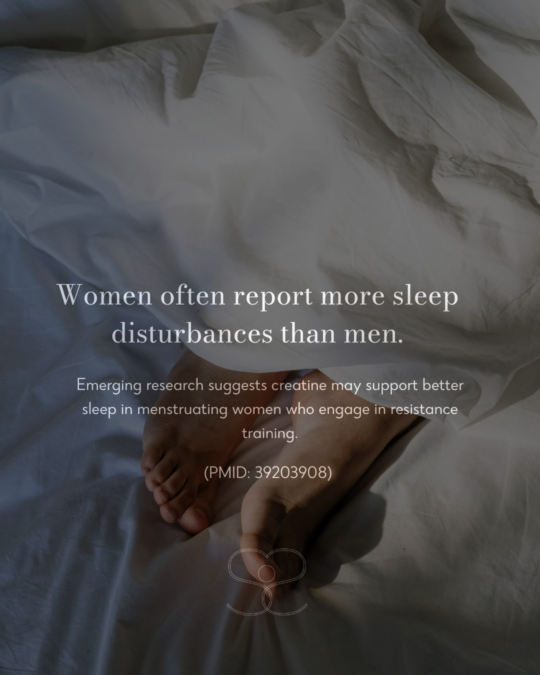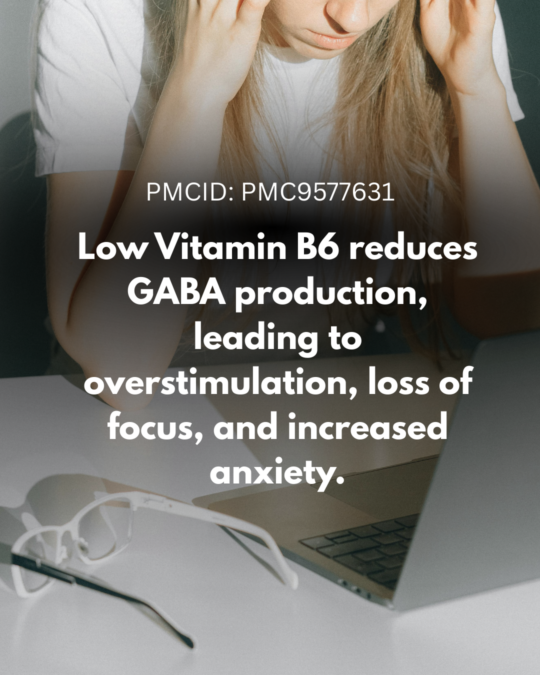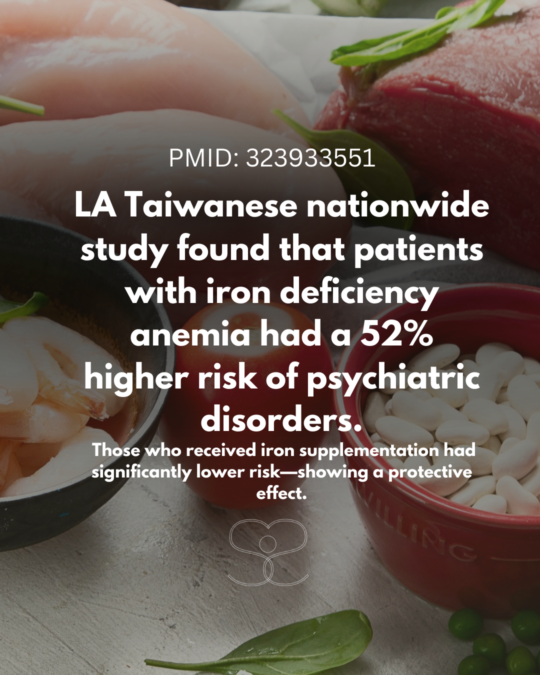How Creatine May Support Sleep in Active, Menstruating Women

By Dr. Soha Salem, ND
Licensed Naturopathic Doctor | UCSD Clinical Psychology Researcher
Women often report more sleep disturbances than men—and this is not just anecdotal. Research supports that naturally menstruating females experience fluctuations in sleep quality across the menstrual cycle, compounded by hormonal changes, lifestyle stressors, and nutritional inadequacies. As a licensed Naturopathic Doctor and a clinician who integrates research-driven care with holistic insight, I’m always interested in the subtle biochemical shifts that can impact foundational pillars of health—like sleep.
A recent randomised controlled trial published in Nutrients (PMID: 39203908) explored something we haven’t often seen in women’s health research: the relationship between creatine supplementation and sleep quality, specifically in naturally menstruating women who engage in resistance training.
Let’s unpack the root causes and implications.
Sleep Disruptions in Women: The Deeper Story
From a naturopathic and psychophysiological perspective, sleep disturbances in women often originate at the intersection of:
- Hormonal rhythms (estrogen and progesterone fluctuations)
- Neurotransmitter imbalances (such as serotonin and GABA)
- HPA-axis dysregulation (cortisol and stress response)
- Nutrient depletion (including magnesium, B vitamins, and creatine)
During the luteal phase (post-ovulation), rising progesterone is meant to support relaxation and deeper sleep. However, if progesterone is low or estrogen dominance is present, women may experience restless sleep, difficulty falling asleep, or early morning awakenings.
Additionally, women under stress, training intensely, or following restrictive diets may experience further depletion of phosphocreatine, a compound essential for cellular energy metabolism, including in the brain.
What the Study Found: Creatine and Sleep Duration
In this double-blind study, 21 naturally menstruating females were randomized to receive
5g creatine + 5g maltodextrin or 10g maltodextrin (placebo) daily for six weeks, alongside a structured resistance training regimen using TONAL® at-home gym equipment.
Sleep was measured daily using OURA® smart rings. The findings?
- Creatine supplementation increased total sleep duration—but specifically on resistance training days (p = 0.013).
- There were no significant changes in subjective sleep quality (PSQI) or chronic sleep metrics.
- Dietary intake (calories, protein, carbohydrates, fat) decreased over time, irrespective of creatine.Why Might Creatine Improve Sleep?
While commonly known as a sports supplement, creatine plays a pivotal role in brain energy metabolism, neurotransmitter regulation, and cellular repair. From a root-cause lens, here are three mechanisms by which creatine may improve sleep—especially post-exercise:
- Neurological energy replenishment: After training, the brain may require additional creatine to restore ATP levels, which support sleep regulation centers in the hypothalamus and brainstem.
- Modulation of serotonin: Creatine has been linked to improved serotonin signaling, supporting mood regulation and potentially enhancing sleep depth.
- Reduced inflammation and oxidative stress: Resistance training increases oxidative stress; creatine acts as an antioxidant buffer, possibly supporting post-exercise recovery and better sleep.
Root-Cause Interpretation:
Why This Matters in Naturopathic Care
Women’s sleep is not just about the hours logged, but about how well the body and mind recover overnight, especially during hormonally dynamic phases like the menstrual cycle.
As a naturopathic doctor, I emphasize:
- Individualized care: Creatine may support sleep in some menstruating women—particularly those training regularly—but it’s not a blanket solution. Your baseline nutrient status, cycle health, and lifestyle must be considered.
- Neuro-hormonal integration: Supplementing nutrients like creatine may indirectly support hormonal balance through improved mitochondrial energy availability and neurotransmitter synthesis.
- Evidence-informed choices: This study adds to a growing body of research inviting us to view nutrition as neurophysiology—not just macros.
My Takeaway for Patients
If you are a menstruating woman experiencing poor sleep and training regularly, creatine may offer gentle, physiological support for sleep recovery. However, I recommend assessing:
- Your full nutrient and hormone panel
- Current training load and recovery capacity
- Ongoing digestive health and absorption
- Co-factors such as magnesium and B vitamins
Creatine is not just for athletes or muscle building—it may be a missing link in your cognitive recovery, mood regulation, and sleep as a whole woman.
If you’re curious about whether creatine or other nutrient-based interventions are appropriate for your health goals, book a consultation. Together, we’ll uncover the root causes—and support your body in returning to balance.

